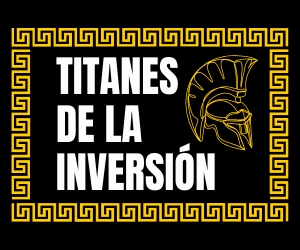For UK expats living in France, navigating the French financial landscape can be complex, especially when it comes to investment and tax planning. One product that consistently comes up in financial advice is the Assurance Vie – a French life insurance investment wrapper with compelling tax advantages. But is it truly the best choice for British nationals abroad, or are there better alternatives depending on your goals, residency status, or time horizon? This article unpacks the mechanics, pros, and potential pitfalls of Assurance Vie for UK expats.

Why UK expats should consider Assurance Vie
Assurance Vie is widely regarded as one of the most tax-efficient and flexible investment vehicles in France. For UK expats seeking to manage their wealth while residing in France, it offers a unique blend of benefits that are difficult to replicate with other investment types. It’s not merely a life insurance product – it’s an investment structure that allows for both capital growth and tax-deferral within a highly regulated framework.
Tax deferral and efficient withdrawals
One of the key attractions is the tax treatment. Gains within the Assurance Vie are not taxed annually, but only upon withdrawal, enabling investors to defer tax and benefit from compound growth. After eight years, withdrawals are taxed at a reduced rate with an annual tax-free allowance of €4,600 for individuals and €9,200 for couples. These benefits make long-term planning more efficient for expats accustomed to the less favourable UK tax structure.
Succession and inheritance benefits
Assurance Vie also provides powerful succession planning tools. Proceeds can be left to beneficiaries outside the forced heirship rules of French succession law, with favourable inheritance tax treatment – especially for policies opened before age 70. For British expats looking to pass on wealth strategically, this offers critical flexibility not easily available through UK-based ISAs or pensions.
Deferred tax growth within the wrapper
Favourable income tax treatment after 8 years
Succession law flexibility and reduced inheritance tax
Multi-currency and multi-asset investment choices
Can be tailored for risk tolerance and objectives
How it compares to other options
While Assurance Vie is powerful, it’s not the only tool available to British expats in France. Other options such as UK ISAs, offshore bonds, French bank savings accounts, and pensions may be worth considering depending on personal circumstances. Understanding the trade-offs is essential before committing to a financial structure that may not be optimal long-term.
UK ISAs and French taxation
UK ISAs lose their tax-efficient status once you become French tax resident. Income and capital gains generated within an ISA are taxable in France, meaning the benefits enjoyed in the UK do not translate overseas. In contrast, Assurance Vie is recognised and integrated into the French tax code, offering consistency and predictability in compliance.
Offshore bonds and other wrappers
Offshore investment bonds are sometimes promoted as alternatives for international clients. However, unless structured carefully with local advice, these can create double taxation issues or non-compliance with French reporting rules. Assurance Vie policies, especially those from large French insurers or bilingual platforms, are built for local transparency and efficient tax reporting.
UK ISAs lose tax benefits in France
Offshore bonds often create reporting headaches
French savings accounts offer low returns and full taxation
Pensions are better for retirement income, not capital flexibility
Assurance Vie uniquely combines growth, access, and planning
Risks and strategic considerations
Despite its advantages, Assurance Vie is not a silver bullet. It comes with costs, regulatory complexities, and suitability considerations that should not be overlooked. UK expats need to ensure alignment with broader financial goals, including retirement, property ownership, and eventual repatriation to the UK. It’s also vital to choose a provider who understands cross-border implications.
Fees, structure, and accessibility
Assurance Vie policies vary significantly in fee structure. Some have high annual management fees, entry charges, or fund switching costs. Choosing a transparent, low-cost provider is crucial. Additionally, investors must understand liquidity restrictions – while withdrawals are possible, frequent access is not as seamless as bank accounts or ETFs.
Cross-border tax implications
If an expat returns to the UK, the Assurance Vie may lose its tax efficiency and raise HMRC questions. Although France and the UK have a double taxation treaty, navigating post-residency treatment requires planning. Some expats might prefer an offshore version of Assurance Vie that offers more neutrality across jurisdictions.
Not all providers offer bilingual or UK-compliant options
Early withdrawals may trigger tax penalties or reduce benefits
Complexities increase if residency status changes
High-fee providers can erode investment returns
Proper documentation and advice are essential





